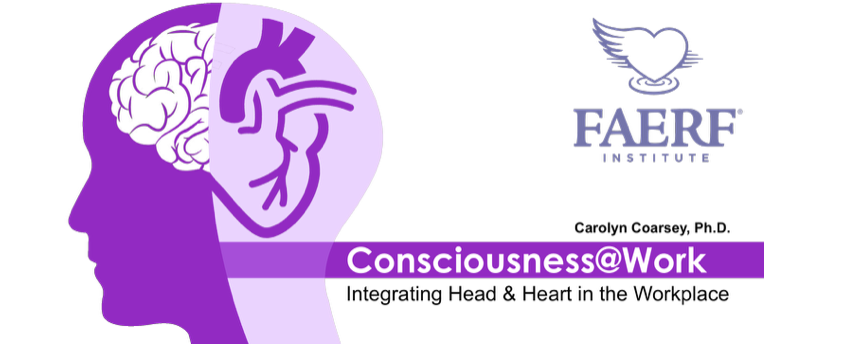
The Family Assistance Education & Research Foundation (FAERF) has been at the forefront of the evolution of emergency management, combining the head-heart approach for a fully integrated response to survivors of traumatic loss. Practicing consciousness in the workplace involves caring for people first, without exception.
Written by: Carolyn V. Coarsey, Ph.D.
September 2024
Helplessness and isolation are the core experiences of psychological trauma. Empowerment and reconnection are the core experiences of recovery.
– Judith Herman, American Psychiatrist
On October 16, the FAERF Institute will hold a webinar featuring the fourth course in the I-HARP™ Practitioner Certificate. On the Helper’s Hierarchy, which represents the progression of survivor needs following a traumatic event, the fourth level addresses the need for care and all responders to confirm the worthiness of all survivors to receive as much compassion and support as possible in the aftermath of the crisis.
As with all the courses, the fourth course in the Certificate will be organized around both a Head and Heart track. The Head or logistical track will include a discussion of processes involved in supporting survivors using the company plan and available resources. The second part of the logistical track will involve key points about transitioning from active engagement with families to demobilization and ending the response.
The Heart Track will be divided into two parts, empowering survivors by offering as many options and choices as the plan will allow, thereby validating the importance of their preferences. The second part of the Heart Track will focus on supporting survivors as they transition from dependency on the company team members back home where their own family, community, and local resources are once again available.
Shame can damage a person’s image of themselves in ways that no other emotion can, causing a person to feel deeply flawed, inferior, worthless and unlovable.
– Beverly Engel, American Therapist and Author
Loss of control over one’s life, a tragic reality for survivors of traumatic loss, leads many to feel shame and guilt in the aftermath of the crisis. Research shows that validation by helpers plays a significant role in helping survivors regain the sense of control they lost during the crisis. Validation by others empowers survivors as it helps restore the sense of trust in others, and gives them confidence that they are not alone in their struggle.
The fourth course will provide examples of survivors’ experiences of validation through both the people who assisted them, and the company’s processes.
How Survivors are Validated by Company Responders
1. Listening:
FAERF’s case study research features many examples of how care team members and other responders have validated survivors by listening to them and finding out their preferences in processes and procedures made available;
2. Offering as many choices as possible in every aspect of the post-crisis response phase;
3. Acknowledging the survivor’s experience and emotions;
4. Avoiding judgment, minimization and rationalization about the survivor’s suffering. Newer Research suggests a better outcome for the survivor’s mental health, including reduced symptoms of post-traumatic stress, depression, and anxiety;
5. Returning personal items in a sensitive manner, with great attention to the presentation 6. Helping survivors return home with appropriate support.
How Companies Invalidate Survivors
Course Four will feature many examples where survivors were invalidated in crucial areas that impacted their long-term adjustment to the losses. Unfortunately, funeral and memorial services are often mishandled, leaving families with disappointments that last a lifetime. While there are many examples where memorial services and funerals were attended to appropriately, this is one area where survivors continue to feel invalidated by the way they are handled.
Ending the Assignment
For the company Care Team and other employee responders, finishing the assignment and returning home and re-entering the work environment is also a subject in the fourth course. Caring for employee responders and honoring their self-esteem needs is also important in the I-HARP™ Certificate courses.
For more information about the I-HARP™ Certificate see HERE.
Many of the survivors featured in the videos included in the I-HARP™ certificate will be speaking at our upcoming Member-Partner Meetings in Miami and London. For more information and to register for the Miami meeting, please click HERE. To learn more and attend the London meeting, please click HERE.
